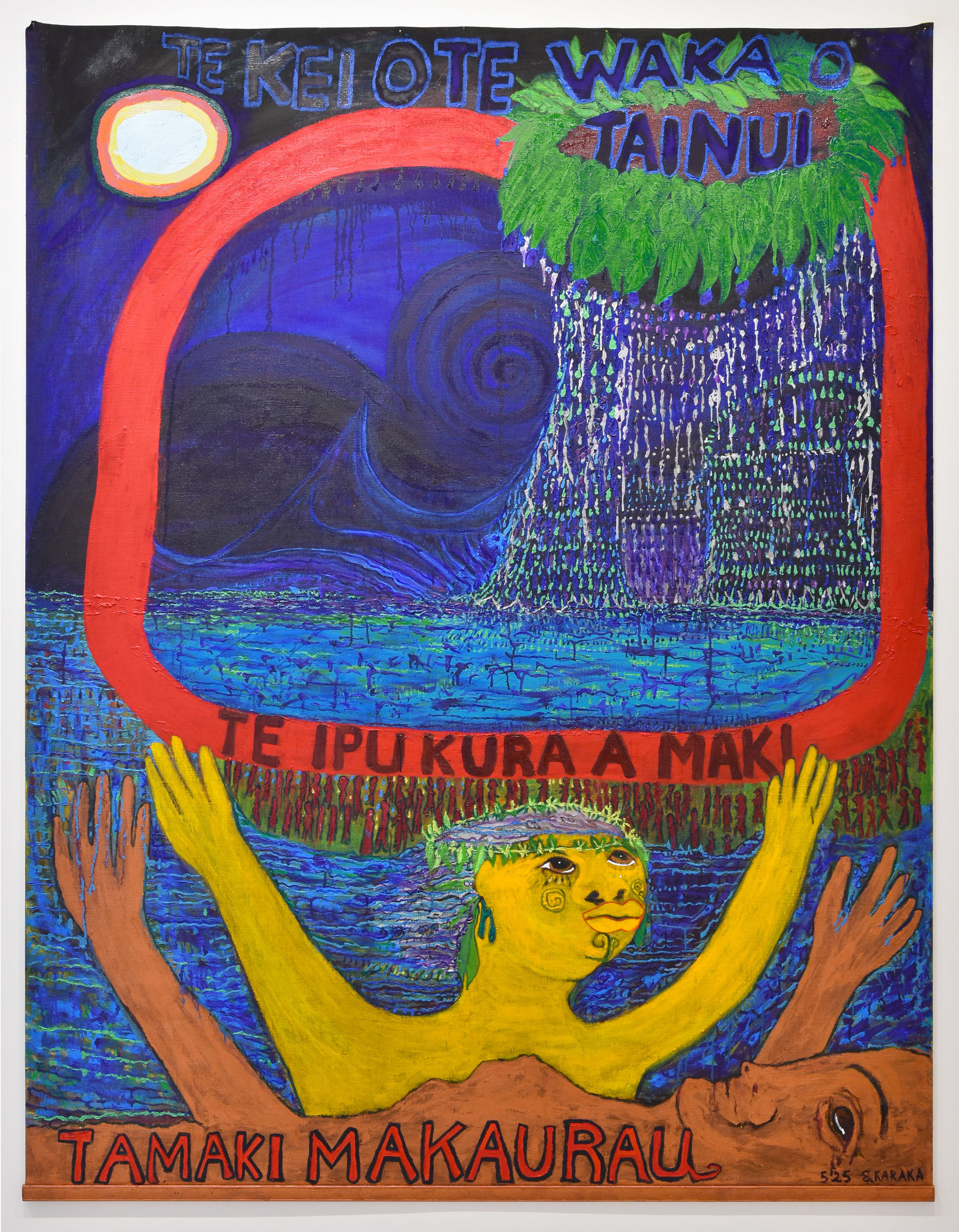Emily Karaka
b. 1952, Auckland, Aotearoa
Emily Karaka is recognised as one of Aotearoa’s leading contemporary painters. Often described as a post-modern expressionist, her work has been exhibited internationally over a career spanning more than three decades.
Karaka’s practice articulates a distinctive perspective within the cultural landscape of Aotearoa. Deeply rooted in her identity as mana whenua of Tāmaki Makaurau–Auckland, painting is her tūrangawaewae - her place to stand. Through this lens, she brings a powerful and vibrant voice to both personal and political narratives.
Her early engagement with art was encouraged by sculptor and teacher Greer Twiss, who recognised her talent as a student. Painting later became a vital form of expression following the death of her father, marking the beginning of her sustained exploration of cultural identity, heritage, and belonging.
Karaka’s works traverse the political and the personal; celebrating whānau (family), addressing environmental concerns, and reflecting on historic and contemporary Māori struggles and sovereignty. Her paintings often combine traditional Māori motifs with European symbols, interwoven with written text that speaks directly to her concerns and convictions.
Influenced by her contemporaries Philip Clairmont, Tony Fomison, and Allen Maddox, as well as her teacher Gretchen Albrecht, who instilled an appreciation for colour, Karaka has developed a vivid, expressive visual language. Her compositions teem with landscapes, flora, fauna, and ancestral figures, each acting as vessels of memory and meaning.



